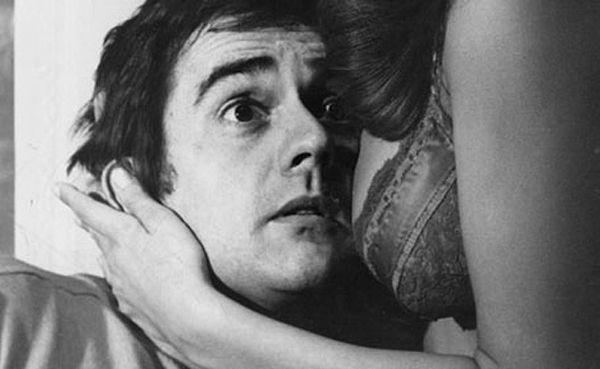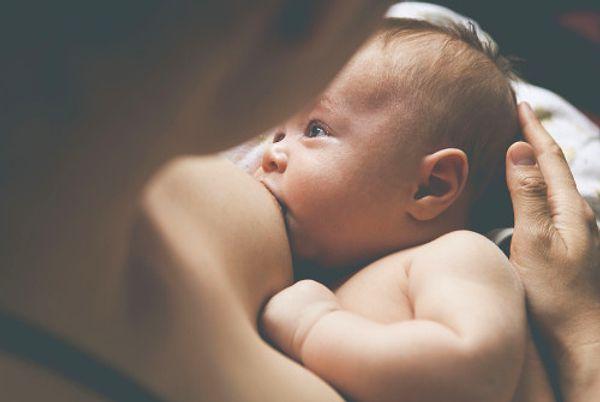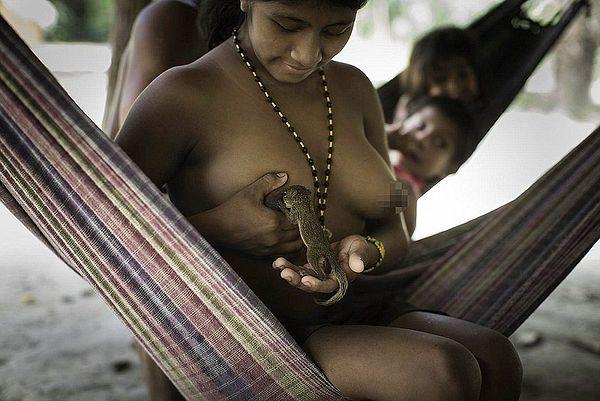Science Time: Why Do Guys Drool Over Boobs?
It wouldn't be complete BS if we were to suggest that men have been attracted to boobs as far back as time goes! It's about time we turned to science to find the answers.
1. Why do men love boobs?

Why do guys feel extremely attracted to these onion-like 'things' on women's chests? We never had a proper, fulfilling answer to this question, but a neuroscientist came up with what seems to be the most reasonable explanation.
Conducting research on complex social behavior at Emory University, psychiatry professor Larry Young suggests that there's a special bond we develop during breastfeeding. However, during this process, our brain limits the bonding action to connect the mother and the baby deeper. Later on, when we are free from this limitation, we automatically go back to feeling attached to them.
Sounds complicated AF, yes, but here's the gist: Just like babies, men LOVE breasts!
2. The perfect love medicine: Oxytocin.

When a women's nipples are stimulated, a neurochemical, oxytocin is produced, significantly increasing the attachment to the baby. But recent studies show that this situation is not only limited to babies.
3. It's a natural process, developed itself in time with evolution.

Recent studies show that nipple stimulation is connected to vaginal and clitoral stimulation, therefore increasing the overall sexual stimulation. According to Professor Young, when the partner stimulates the nipple, the body produces oxytocin, greatly increasing her attention and focus on the partner.
In other words, partners can make themselves more attractive and wanted by focusing on women's breasts. Kinda 'handy,' eh?
4. It's also the result of our sexual, animal-natured instincts.

Young says men develop this interest the moment they hit puberty, and adds that men evolved this way. This results in a complete bonding between men and women, therefore increasing sexual attraction.
Then, comes the crucial question: Why we don't see this in other mammals, only in humans? According to Young, humans choose monogamy, as opposed to animals that have multiple partners. So in a way, animals don't need this extra stimulation. Also, the standard position of humans gives us more access to the upper body, as oppose to animals. Young says this situation is specific to us only.
5. Other theories on this subject...

Before young worked on her own research, she thoroughly went over other studies.
Most of the other studies seem to have focused on the maternal connection and how breasts are deemed holy and glorious. In time, with clothes covering them and making them more tempting, the attraction grew. Of course, like all other things, what's hidden or inaccessible is much more tempting for us!
6. One last thing: Not ALL men are attracted to boobs.

Fran Mascia-Lees from Rutgers University suggests the other side of the medallion is just as interesting. According to her, each and every biologist should deeply study the cultural differences and changes when working on new theories, and adds the fact that most men in Africa don't find breasts attractive. This is mainly due to the fact that women don't cover them.
However, Young suggests this doesn't specifically suggest that nipple stimulation has no place in their culture. This also might be due to a whole other anthropologic reason, as this area is not deeply researched.
Keşfet ile ziyaret ettiğin tüm kategorileri tek akışta gör!

Send Comment